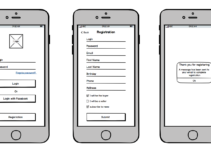“If you give a man a fish, you feed him for a day. If you teach a man to fish, you feed him for a lifetime,” so the age-old proverb goes. While we might like the message of self-sufficiency it promotes, if you’ve ever tried to teach someone to fish… you know it’s more difficult than the saying implies.
Training and development are essential pieces of your business and self-sufficiency, or at least a path to it, will make your company stronger. The issue is that providing education and training is a skill in and of itself. Those with professional qualifications have probably invested more time into their own technical skill sets than they have into the art of effective training. You could probably use some expert help!
Follow these tips to train and develop your team’s technical proficiencies.
Why are technical skills so important?

Source: unsplash.com
Technical skills undergird many of your company’s biggest achievements. Broadening the skill sets of your staff can increase their competence, reduce the frequency of mistakes, and generally help your business run smoothly.
Regardless of the assigned roles of your team members, their day-to-day tasks are dependent on a variety of tools and processes. Promoting workplace education and upskilling encourages staff to grow both personally and professionally.
Some subcategories of technical skills and specifics include:
- Coding and programming skills: Coding programs and programming languages your staff may benefit from learning include Python, JavaScript, HTML, and Ajax. Browse the various coding courses that are available at https://codingbootcamps.io/ to get your staff well prepared in learning the most important skills and languages that are used in this industry.
- Project management and productivity: Some common skills in this area include budget planning, task delegation, quality control and assurance, as well as scheduling.
- Content and marketing skills: Today, these skills are primarily digital and include social media management, website creation tools, web analytics, SEO, and automated marketing tools.
- Additional technical skills: There is no shortage of hyper-technical skills to learn. Some useful examples include information security, telecommunications, cloud/SaaS/DaaS, and customer relationship management (CRM) tools.
Developing staff competence will give you a leg up against your competitors. According to billionaire business magnate Richard Branson, “If you really want to grow as an entrepreneur, you’ve got to learn to delegate.” Delegation and success go hand in hand, and by having staff trained across key areas and technical skills in the business, you will be better equipped to delegate and improve productivity.
Below are ideas on how to improve the technical training of your staff.
Make training videos
Nowadays, people prefer learning through videos versus reading. This trend has grown alongside spending increased time on our devices. But if you’re dissuaded by a lack of video creation skills, fear not! You can easily find a complete guide to training videos on Vidico.
Some reasons for video’s success as a learning tool include:
- Visual learning: The human brain is predisposed to visual learning and has a faster response time to visuals than it does text. Essentially, images are retained by the brain more easily and for a longer period of time.
- Demonstrative learning: Abstract concepts can be conveyed much more simply through video than in dense slabs of text.
- Self-directed study: Videos are a resource you can revisit anytime and help people learn things that would ordinarily require a teacher.
- Distance learning: This has skyrocketed in popularity since the 2025 COVID-19 outbreak and can provide a training experience on par with that of a classroom.
- Context: Through the power of creating a visual link, videos can contextualize topics and concepts better than alternative learning methods.
Link technical skills to real work situations

Source: tryengineering.org
If team members display a lack of motivation toward technical training in corporate settings, this can result from an inability to link those skills to their day-to-day roles. To engage learners in the process of boosting their technical proficiencies, you need to demonstrate how these skills impact their roles for the better Visit this website if you want to know more.
Ways to do this include through technically focused team-building exercises, situation simulators where real work problems are solved or improved with these skills, and quizzing staff upon completing the exercise.
Relate technical skill training to career development
By linking technical skills to career progression, you are demonstrating a clear link between skills and employee benefits. This is a great way to motivate employees into training and promote the value in doing so. Some ways to do this include:
- Promoting the benefits of upskilling and showing how increasing your skill set makes you a more valuable asset to the company.
- Creating a tiered system whereby a hierarchy of skills are required for certain positions within the company.
- When promoting training to staff, begin with a testimonial from a staff member who has grown in the business due to an increase in technical knowledge.
Encourage staff to take courses at a formal educational institute

Source: kerntraining.com
Despite the fact that workplace training has changed significantly over the past year, educational institutions still exist and they still have plenty of seats to fill in their classrooms.
The benefits of studying with these institutions, whether they be polytechnical schools or community colleges, is that they teach industry-specific skills. The courses tend to be aimed at working professionals, so they are adaptable to the schedules of this demographic and often hold weekday evening classes.
It may also be that these institutes teach numerous skills, so that once a staff member finishes with one they can continue on to another, thereby increasing the value they bring to the company. By making their school fees a company expense, this forges a sense of loyalty to the company as this gesture communicates that they are important enough to invest in.
Assign skill leaders who can promote the benefits of certain skills
Many internal corporate training websites and programs fail to capture the interest of the students using them. They can feel like a formality to be checked off a list, as well as defy our natural preference for reassurance from a human and not a slow loading web page.
Informal skill leaders foster a sense of relatability, allowing learners to engage with technical skills through someone they know. A team member with exceptional technical experience can mentor staff and overcome the drab language of overly technical content.
In conclusion
Training and developing your staff’s technical skills can lead to positive outcomes for your company, and can boost team morale. Ideas on how to improve the teaching of technical skills to your staff include using video, relating technical skills to real work problems and career progression, assigning skill leaders, and through formal education. Choose one idea or use several – your employees will thank you.To read more about CRM software click here.







